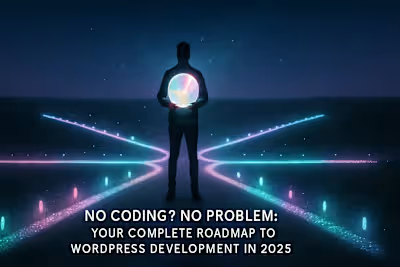Fast-Track Your Skills: Top 10 Courses & Resources to Master WordPress in 2025

Fast-Track Your Skills: Top 10 Courses & Resources to Master WordPress in 2025
Official and Community-Driven Resources (Free)
Learn.WordPress.org: The Official Training Hub
The WordPress Codex & Developer Resources
WPBeginner: The Ultimate Beginner's Blog
Top Online Courses for Structured Learning (Paid & Freemium)
Udemy: A Universe of WordPress Courses
Coursera: Guided Projects and Specializations
WP101: Beginner-Friendly Video Tutorials
LinkedIn Learning: Professional Development Paths
Specialized Training for In-Demand Skills
Mastering Page Builders: Elementor & Beaver Builder Academies
eCommerce with WooCommerce
WordPress SEO: Yoast & Rank Math Blogs
How to Choose the Right Resource for You
Define Your Goal: User, Designer, or Developer?
Combine Free and Paid Resources
References
Fast-Track Your Skills: Top 10 Courses & Resources to Master WordPress in 2025
Official and Community-Driven Resources (Free)
Learn.WordPress.org: The Official Training Hub
The WordPress Codex & Developer Resources
WPBeginner: The Ultimate Beginner's Blog
Top Online Courses for Structured Learning (Paid & Freemium)
Udemy: A Universe of WordPress Courses
Coursera: Guided Projects and Specializations
WP101: Beginner-Friendly Video Tutorials
LinkedIn Learning: Professional Development Paths
Specialized Training for In-Demand Skills
Mastering Page Builders: Elementor & Beaver Builder Academies
eCommerce with WooCommerce
WordPress SEO: Yoast & Rank Math Blogs
How to Choose the Right Resource for You
Define Your Goal: User, Designer, or Developer?
Combine Free and Paid Resources
References
Posted Jul 6, 2025
Ready to master WordPress? Explore our curated list of the best online courses, tutorials, and free resources to become a proficient WordPress freelancer in 2025.










